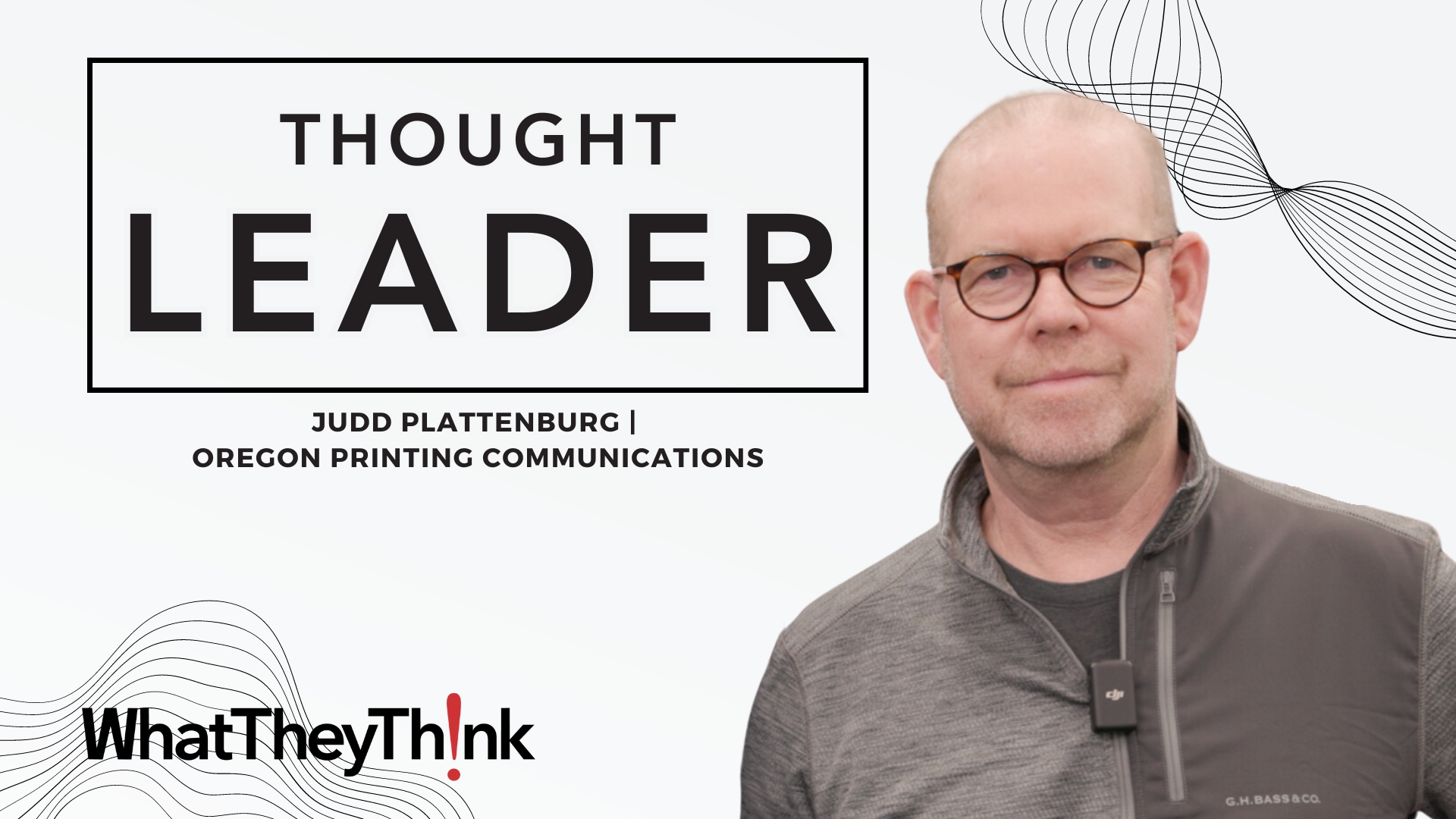One afternoon, I had the opportunity to sit with four professional, tech-savvy Millennials and one Gen Z and ask about their perception and use of QR Codes. Listening to all five respond to my cross-examination answered a lot of questions I had about why QR Codes have not gained the traction I would have expected.
Here’s the make-up of the group:
- College student and marketing/graphic design support
- Director of programming
- Consultant and non-profit fundraising expert
- College student and part-time facilities support
- Director of marketing and community engagement
With this group, all ranging from early 20s to mid-30s, I figured there had to be at least some QR Code use. I was wrong. Here are some of the key issues about why this is.
- QR Codes are seen as too much work.
When asked about QR Codes, two didn’t know what they were and the other three described them as being “too much work.” When they described the process and why it was so much trouble, none of them described it accurately. They added steps, talked about “taking pictures,” and used other language that showed that their understanding of QR Codes was tangential at best.
- They didn’t understand the benefits.
Most people are willing to expend additional effort when they see a payoff at the end. None saw QR Codes as offering a payoff. Why they would scan a code when they could just Google the information instead? If there was unique content they were missing out on, or if scanning a QR Code was faster and more efficient than the process they were using, they didn't seem to care.
- There is a lack of curiosity.
Not only was this group unfamiliar with how QR Codes worked, but there was a lack of curiosity about them, too. After all, they said, if they wanted to learn more about something, they would just do an Internet search. Why bother to use the code at all?
- Early negative experiences remain.
Those who had used QR Codes in the past had negative experiences that still define QR Code use for them. They were sent to a non-mobile-optimized corporate site. The link was broken. The information was irrelevant. They had a few bad experiences and never tried again. It doesn’t matter that the content on the back end is getting better. If they don’t scan the codes, they aren’t going to find out.
I wanted to dig into the fundraising consultant’s perception, in particular. Isn’t there value in using QR Codes to send people to mobile videos showing how the fundraising dollars are being used? Happy children drinking fresh water? Pets saved from abuse and neglect now frolicking in their new homes?
The consultant said that his organization had tested QR Codes, and usage was quite low. Plus, people who scanned QR Codes tend not to be givers. “We found that if we sent the appeal to 10,000 people, we’d have 100 people use the code,” he said. “Of the Gen Zs, we saw no use at all. It didn't lead to gifts, either. People who used the QR Code watched the video, but didn’t give.”
- In all, they just couldn’t be bothered.
These Millennials and Gen Z had their way of doing things. It worked, so if it ain’t broke, they said, why fix it? After I talked up QR Codes a little bit and corrected some of their misperceptions, several expressed very mild interest. Maybe they might try it sometime. But it was pretty clear that if I wasn’t there at the moment of opportunity, making the case in their ears, they probably wouldn’t.
Personally, I like QR Codes, and I use them. Sometimes they don’t provide value, the link is broken, or they send me somewhere pointless. But I understand them well enough to keep trying, knowing that when they are done well, the pay-off is worth it. But that’s me.
When it comes to Millennials and Gen Z—at least these five—QR Codes serve no purpose, so when they see them, they aren’t even curious. Even if the marketer includes a well-worded benefit to scanning the code, they will probably miss it because they’ve already tuned out. If they’re wrong, they don’t care. They’ve got their own way of doing things, and that’s good enough for them.
Are there flaws in their thinking? It doesn’t matter. Sometimes perception is reality. This appears to be one of those times.















Discussion
By Cary Sherburne on Apr 17, 2019
Thanks for doing this, Heidi! I'm certainly not a millennial or Gen-Z, but I agree with them. I rarely ever scan a QR code. they are right, it is easier to google, or check the product description on Amazon if it is a product :-)
I think when I visit my grandkids in July, I will ask them, 10 and 13 years old, both have phones and both are extremely digitally savvy. Should be an interesting discussion!
By Gordon Pritchard on Apr 17, 2019
Bravo for an honest evaluation of QR code usage! I think that despite all the hype you’ll see the same result with the use of AI in, for example, packaging. And I think that you’ll get a similar reaction across any generation you question.
By Robin Brown on Apr 17, 2019
I was born in 1982, so I'm in that Gen X/Millenial crossover. I see great value in them for manufacturing, but marketing-wise, I ignore them. I only recently realized that my iPhone camera will scan them and automatically take me to the code's landing page! But even having learned that, much like those in the group above, I don't see the point. I can ask Siri to search more quickly than I can scan a QR Code.
By Heidi Tolliver-Walker on Apr 17, 2019
I guess because I'm in the industry, I make an assumption that the brand is going to give me something exclusive by going through the QR Code -- something I can't get simply by Googling it. Or that they will take me more directly to the information rather than make me hunt for it. But everyday consumers may not make that same assumption.
By Cary Sherburne on Apr 17, 2019
But in your experience do they give you something exclusive? That you can't get elsewhere?
By Heidi Tolliver-Walker on Apr 17, 2019
On occasion. Usually, I get a synthesized version of whatever the topic is or it prevents me from having to drill down. "Scan this code for planting instructions," giving me the minimum of what I need to do rather than making me read through and distill a long article from Home Gardening magazine or whatever. I'm getting curated content directly related to my interest. I'm too time-pressured to have to distill or synthesize anything in a consumer environment, so that's what I'm looking for. Sometimes I get it. Not always. But sometimes.
By Ray Cheydleur on Apr 17, 2019
I think that Cary and Heidi have hit on the current problem with QR code implementation - what is the reward for taking a new action? My experiences with QR codes after their initial difficulties originally (special app, slow recognition etc) are that they rarely provide value for the intrusion of needing to use the code "right now". The example of getting plating instructions is a great implementation - but my fear would be that instead of getting a curated simple planting instruction, I would instead be given more marketing on other plants that might go well with the plant I scanned. Ultimately I generally avoid QR codes because they seem to be more about generic marketing instead of adding valuable information.
By Heidi Tolliver-Walker on Apr 17, 2019
Agreed — and what this discussion with Millennials made so clear is that these poor implementations have long-lasting negative effects. Some of the QR Codes my group scanned were years ago, and they hadn't bothered to try them again. Those poor experiences stuck with them as if they happened yesterday. Marketing implementations may be getting better overall, but consumers clearly have very little patience and may not give them a second chance.
By Gene Hayes on Apr 17, 2019
i am not sure that a discussion with 5 people is a large enough sample to really make any real conclusions on this subject.
By Thayer Long on Apr 19, 2019
Spot on.
By Eddy Hagen on Apr 19, 2019
Interesting... Although 'lack of curiosity' sounds a bit terrifying. Is this only for QR codes or for new technology in general?
The main issue is indeed that there has to be value in it. I received a very nice example about two years ago: my insurance company wanted to upsell some insurance and the return document also included a QR code. When scanned, I got to a personalized document that I only had to sign to get that extra insurance… Really convenient. This article shows more details: https://www.insights4print.ceo/2017/06/qr-codes-are-dead-unless-you-do-something-clever-with-them-funpromotion-vs-productivityconvenience/
In Belgium QR codes are used a lot for payments via your mobile phone, they are part of the payment procedure. And this is something that could be useful e.g. for fundraising: print a specific QR code on leaflets or whatever, when scanned with the banking app, users only has to fill in the amount they want to donate and confirm the payment via their security code. This is feasible with the current banking and payment apps in Belgium. I don't know if other countries are already using this kind of systems.
By Sneh Choudhary on May 10, 2019
I was surprised when I first read this article but it makes sense. People know what QR codes are or they like to think they know what QR codes are. Most people like the group mentioned think its spammy or think QR codes are only meant to take you to a website. I don't even blame them because companies have not done a very good job at explaining or using a QR code in all its glory. Although in Asia, several countries have moved to QR codes for payment, the idea that QR codes could be used to make a call, send an email is still alien.
Coupled with the fact that end users and companies are not even aware that a QR code does not have to be black and white and that you can add your own logo to it, the adoption rate was dismal in the past. https://www.beaconstac.com/designing-customized-qr-code
But, QR codes are coming back in a big way and I think millenials and Gen Z will welcome the new change.
Discussion
Join the discussion Sign In or Become a Member, doing so is simple and free